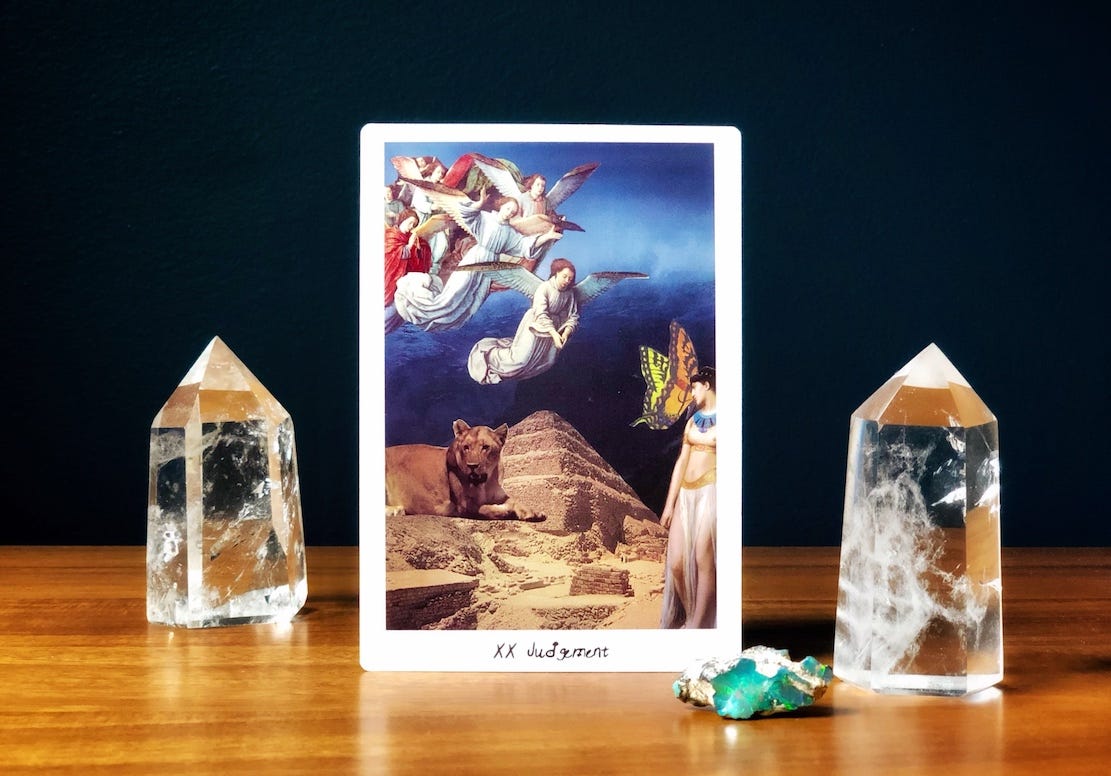Growing up, my parents kept the TV perpetually tuned to the news, bold-faced headlines refreshing on a constant loop. Though I was too young to understand much of it, I remember watching scenes of conflicts, at home and around the world, and feeling a sense of helplessness.
Sometimes, I’d put on my winter coat, a puffy floral print affair, zipping it all the way up to the neck. It was my best attempt at emotional armor, as though the extra layer might protect me from the realities of the world. In my child mind, it felt like a show of solidarity with those donning real armor on the frontlines.
“I’m cold,” I shrugged, when my parents inquired as to why I got bundled up to watch TV. It was easier than explaining the truth.
This past week, I’ve felt those same recurring feelings of powerlessness as I hit refresh on my news feed, once again confronted with the tenuous nature of our world.
As Pema Chödrön writes, “In reality, there is no difference between our pain and that of others. Fear is fear. Sadness is sadness. Anger is anger. Anxiety is anxiety. Whether we call them ‘mine’ or ‘yours,’ they’re more like free-floating qualities we all share.”
Typical human logic tries to avoid suffering. In our everyday lives, we make great effort to remain in our comfort zones, to seek cozy distractions, to look away when faced with harsh or uncomfortable truths. Of course, we understand it isn’t healthy to dwell inside the news cycle. But in a world plagued with war, violence, natural disasters, the toll of a shifting pandemic… how do we bridge the vast chasm between survival and denial, so that we can show up where we’re needed?
Tonglen, or “taking and sending,” is an ancient meditation practice that has helped me through many difficult times. Unlike mindfulness meditation, where you attempt to clear your mind of thoughts, tonglen is active. It can be done for those who are ill or facing hardship, those who are dying or have died, those who are engaged in conflict. You can do it anywhere, at any time — on the street while walking, or at home in front of the computer.
In essence, you breathe in, taking on another’s pain, then breathe out, sending relief. At first glance, this sounds terrible. Why would you purposefully absorb someone else’s hurt? But the effects are calming, softening, even profound.
While sitting with our feelings doesn’t change the immediate situation — I certainly don’t mean to suggest you can wish away the world’s problems — it is a helpful exercise for expanding our compassion and increasing our ability to respond.
The practice is simple:
Begin by allowing your mind to land in a place of stillness.
It can be helpful to think of a scene that inspires a feeling of vastness and peace. You might imagine a beach, the horizon stretching before you. Or a vast expanse of forest. Or the wide open sky. It can be anywhere, real or imagined, that helps you connect to a quiet place within.
Shift your awareness to your breath, slowly inhaling and exhaling.
Many people find it helps to use visuals, like color, texture, or light. As you inhale, picture absorbing red heat or thick fog or green slime — whatever embodies the suffering you wish to take on. Then exhale, imagining white light or cool blue air or a soft pink cloud — whatever feels healing.
Focus on a person, animal, or situation.
It can be someone close to you, or a complete stranger. It can be just one being, or a whole group. (It can also be for yourself.) Once you’ve held them in your mind, try widening your focus. If you feel so inclined, you can continue zooming out until you envision the planet, radiating your intentions as widely as you can. Breathe in for all, breathe out for all.
My thoughts are with the people of Ukraine, with all beings across the world, and with you, wherever you are in this moment.
Staying informed — and remaining skeptical about the spread of disinformation — is one of the best ways to help.
If you wish to send monetary relief to Ukraine, large international aid organizations are providing support, including: UNICEF, ensuring safe drinking water and the health of children and families; Doctors Without Borders, working with volunteers and healthcare organizations to help people access healthcare facilities and prescribed medications; and the UN Refugee Agency, which provides cash assistance and the opportunity for resettlement.
The humanitarian organization CARE has set up an emergency Ukraine Crisis Fund, pledging urgent aid to at least four million people, including water, food, and hygiene kits, as well as direct cash assistance. Nova Ukraine is an American nonprofit that is assembling supply packages including baby food, diapers for children and adults, hospital supplies, and dry food.
Card of the Week
Here is this week’s card for the collective, as well as some thoughts to carry into the days ahead. As most modern readers will tell you, the tarot is not about fortunetelling, nor is it about neat, definitive answers. The cards are simply one path to reflection, a way of better knowing ourselves and others through universal themes. If this reading resonates with you, great! And if not, no worries. Take whatever may be helpful and leave the rest.

There are those moments that divide everything into Before and After. A meeting. A phone call. An acceptance. A rejection. A triumph. A diagnosis. A loss.
Why does it often take a big event to shift our perspectives? To illuminate what we have and what we’ve taken for granted? To shed light on what truly matters and how we wish to spend our days?
Judgment poses these questions — right now, regardless of what else is going on in your life. It wants to know what matters to you, because it wants to ensure that you know it, too. Despite its name, this card has no interest in being judgmental. In fact, it’s far more focused on forgiveness.
The book Tuesdays with Morrie, about lessons gleaned from the author’s visits with his dying professor, is the best-selling memoir of all time. Why? Because it’s short. (Kidding.) The book hits on big, universal themes about the meaning of life — coincidentally, the same themes as Judgment:
You don’t need to be perfect. You don’t need to lead a big, fancy life to be content. Find what matters to you, and do it wholeheartedly, without expecting anything in return. Everything is impermanent, but our relationships (and the love we create) survive indefinitely. Forgiveness is important, both for others and for yourself.
Like Morrie, Judgment asks us to contemplate the value of living. To examine our lives, not from the angle of what we could be doing better, but as a wisened elder watching a movie in reverse. As you look back at where you’ve been, reviewing all your mistakes and triumphs, actions and motivations, you are able to view them from a distance. From this vantage point, with your ego removed from the equation, you suddenly meet yourself through a lens of objectivity and understanding.
This card carries the message that every day is judgment day. Not in the “eek-you-might-be-about-to-meet-the-final-judgment” sense, but more along the lines that each day you wake up is a chance to greet yourself anew.
Can you forgive yourself for whatever you’ve been holding onto? Can you confront the ways you judge yourself, and soften your focus?
Judgment challenges us to approach our lives with as much objectivity as possible. That includes the parts we fear — our worst habits, desires, cycles — as well as the parts we may regard too harshly. It promises that if we trust the process of opening ourselves more fully to the world around us, we will be rewarded by a greater connection to it.
Many depictions of this card feature angelic beings, often sounding a trumpet, blaring a divine message. Indeed, there is a message for all of us, but you needn’t wait for angels to hear it. The words are already inside you, wanting to be known.
This card asks us to stop and take a look around — at the space you’re in, at the way you feel. What are you proud of? What do you wish to cultivate? What would you miss if it were to disappear?
Judgment calls us to live with purpose, embracing our capabilities and releasing the excuses we make about what’s holding us back. You are not beholden to your story. You are not beholden to your past. The road is unfurling before you. Where would you like to go?
Thank you so much for reading! If you enjoyed this letter and would like to receive future installments in your inbox every Sunday, please consider becoming a subscriber.








Thank you for sharing. Spent the weekend educating myself, donating, spreading the word. There is heaviness in the world. And as we go about our day to day, we struggle with the helplessness we feel. I go back to this Jane Goodall quote:
"I like to envision the whole world as a jigsaw puzzle... If you look at the whole picture, it is overwhelming and terrifying, but if you work on your little part of the jigsaw and know that people all over the world are working on their little bits, that's what will give you hope.”
Wow, what a powerful message from start to finish! Thank you so much, Caroline!!!!